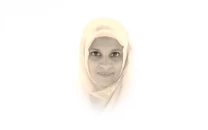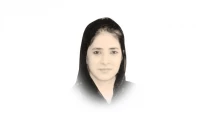Intelligentsia, street and democratic development
Major factor contributing to the poor impact of our intelligentsia is that its work is dispersed

The writers are members of the Collective for Change
The point, however, is to change it. — Karl Marx
Despite varying writing styles, an examination of Op-Ed articles by serious authors reveals many similarities in the selection of issues and problems, arguments used, causes stated, conclusions reached, and recommendations proposed. By and large these writings are of great value as most support constitutionalism, the rule of law, democratic development, good governance, environment, free media, human rights, women’s rights and rights in general. However, despite their laudable contributions they have had a negligible, if any, impact on the developmental trajectory of the country.
In terms of development, despite massive foreign aid and technical support, and despite NGOs’ and INGOs’ assistance, the country stubbornly keeps sliding on most global and regional indices and Pakistan is now considered the ‘Sick Man of South Asia’. Consider: On the Global Gender Gap Index, we are only above Yemen — a war-torn country. According to a latest UN study released on February 14th on gender equality for Sustainable Development Agenda 2030, Pakistan is one of the four countries where gender inequality is deepest and widespread. Infant and maternal mortality ratios are also embarrassingly high. On the Global Competitiveness Index 2017, all the South Asian countries are above, and only African countries are below us. The Global Resilience Index 2017 also shows us at 125th position out of 130 countries studied. We also find our country almost at the bottom on voter turnout, and of 169 countries we rank at 164th.
While many actors contribute to the success or failure of the country’s development trajectory, the role of the intelligentsia is considered pivotal. However, in Pakistan the intelligentsia has been increasingly marginalised and their voice is getting feeble by the day. There are historical, social, cultural and political factors within which the marginalisation of the intelligentsia is contextualised; and which are beyond their control. However, notwithstanding these great difficulties, the intelligentsia has weaknesses of its own that has contributed to its marginalisation; and it is time for reflection and for revisiting and changing their role and modus operandi.
By and large members of the intelligentsia are highly unlikely to be practically engaged with the political process or any social movement. Therefore, while their observations and analyses may be theoretically and analytically sound, they often are loosely linked to the pragmatic problems that people face in real life. There is not much of a link between the analyses and what is happening on the ground. Thus our intellectuals are primarily commentators and their commentaries do not have practical effects on ground realities.
If the intelligentsia wants to go beyond just interpreting the world, they need to bridge the gulf between analytic work and lived problems of the ordinary citizen. That will become possible by increasing participation in the ongoing political and social processes. Given the nature of most of our political parties and social movements, one can understand why serious thinkers may be averse to engaging with them. However, absence of engaged participation of the intelligentsia in these processes results in the perpetuation of developmental activities that are not people-friendly and driven by whimsy and self-interest of the political class and/or other powerful groups with vested interests. Through participation, not only will their own observations be enriched but their insights can also start having an impact on the ongoing political and social processes, and thus expand the space for informed and people-friendly change.
The other major factor contributing to the poor impact of our intelligentsia is that its work is dispersed. Unlike other democratic countries where the intelligentsia actively participate even lead social movements, in Pakistan their counterparts merely comment on social and political developments. Interestingly most of them not only may know one another and many may also be friends, but they work separately and in parallel. This tendency is a reflection of the numerous divisions in our society which are not conducive to cooperative work and the intelligentsia is not immune to the dispersed nature of our society.
Our intellectual landscape has quite a large number of (intellectual) communities in the form of think tanks, policy groups and the like; and many are doing excellent work. In addition there are about 187 recognised institutions of the so-called higher learning, which in theory are crucibles of innovative ideas, but in reality there are rare intellectually sound voices that emerge from them.
So, the other major reason for the failure of the intelligentsia to have an impact is the dispersed and individualised nature of their work. Each group or individual is weighing in separately. But for ideas to have an impact, a critical mass of like-minded intelligentsia needs to evolve which can start working and producing cooperatively and building organic relations with working women and men of the country.
We are sure this will not only pave the way for social change but also help improve intellectuals’ rigour, creativity, innovation and imagination that are according to various global indices currently very low. So, borrowing from Marx and Engels we say: Like-minded intelligentsia of Pakistan unite, with the people and with each other; you have nothing to lose and a lot to gain.
Published in The Express Tribune, April 20th, 2018.
Like Opinion & Editorial on Facebook, follow @ETOpEd on Twitter to receive all updates on all our daily pieces.


















COMMENTS
Comments are moderated and generally will be posted if they are on-topic and not abusive.
For more information, please see our Comments FAQ